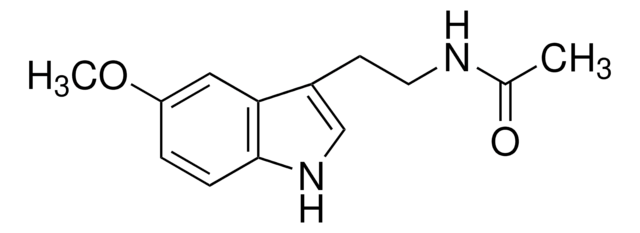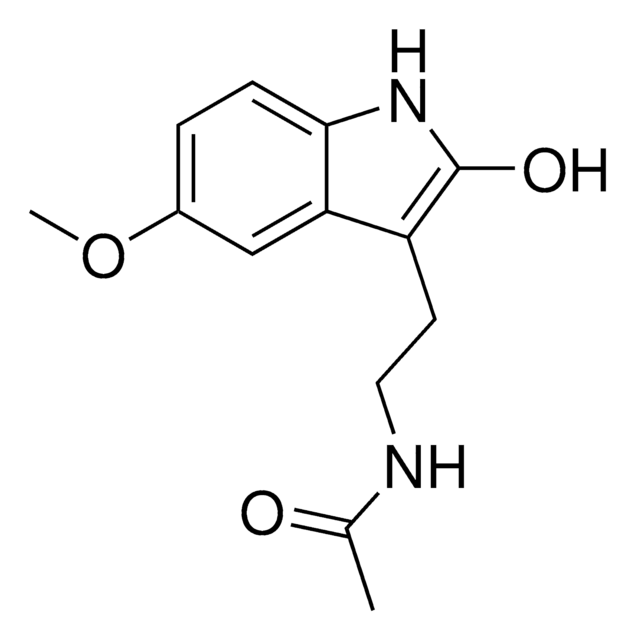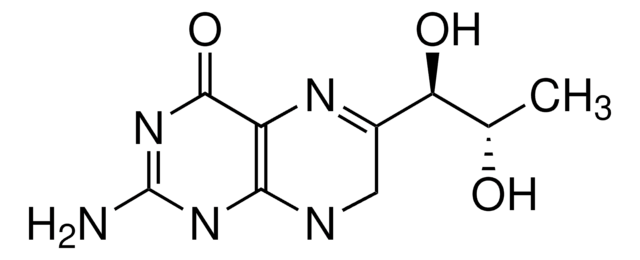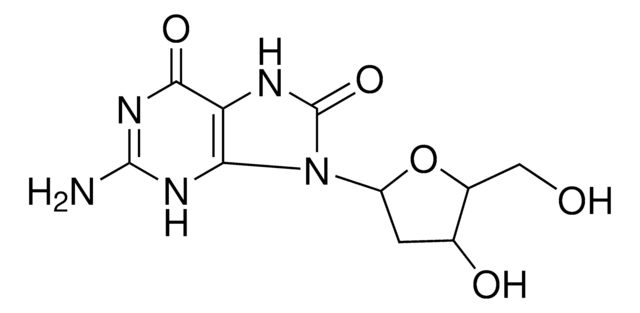H0627
6-Hydroxymelatonin
Synonym(s):
3-(N-Acetylaminoethyl)-6-hydroxy-5-methoxyindole
About This Item
Recommended Products
solubility
alcohol: soluble
Quality Level
SMILES string
COc1cc2c(CCNC(C)=O)c[nH]c2cc1O
InChI
1S/C13H16N2O3/c1-8(16)14-4-3-9-7-15-11-6-12(17)13(18-2)5-10(9)11/h5-7,15,17H,3-4H2,1-2H3,(H,14,16)
InChI key
OMYMRCXOJJZYKE-UHFFFAOYSA-N
Gene Information
human ... MTNR1A(4543) , MTNR1B(4544)
Looking for similar products? Visit Product Comparison Guide
General description
Application
Biochem/physiol Actions
signalword
Warning
hcodes
Hazard Classifications
Acute Tox. 4 Oral - Carc. 2
Storage Class
11 - Combustible Solids
wgk_germany
WGK 3
ppe
Eyeshields, Gloves, type P3 (EN 143) respirator cartridges
Certificates of Analysis (COA)
Search for Certificates of Analysis (COA) by entering the products Lot/Batch Number. Lot and Batch Numbers can be found on a product’s label following the words ‘Lot’ or ‘Batch’.
Already Own This Product?
Find documentation for the products that you have recently purchased in the Document Library.
Our team of scientists has experience in all areas of research including Life Science, Material Science, Chemical Synthesis, Chromatography, Analytical and many others.
Contact Technical Service




